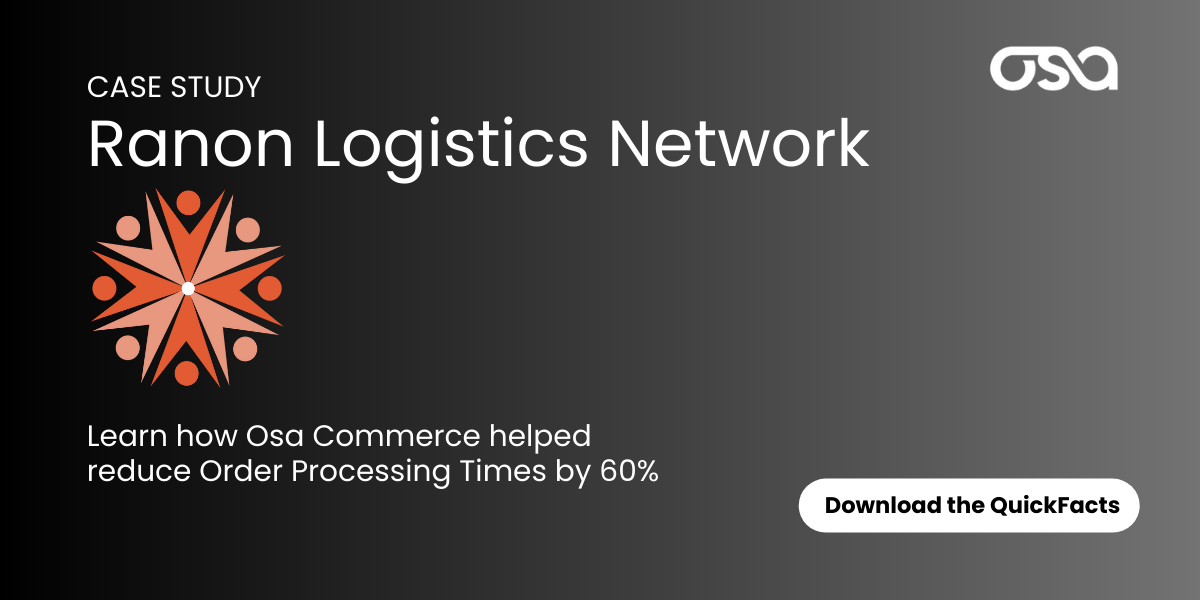4 min read
Multi-Client Fulfillment Services with Logistic Professionals and Brands
 Chelsea Mori
:
June 29, 2023
Chelsea Mori
:
June 29, 2023
%20(1200%20%C3%97%201200%20px)%20(1024%20%C3%97%20512%20px).png)
In the fast-paced world of retail, e-commerce has transformed customer expectations and the entire buying landscape—bringing new opportunities and challenges for businesses. Many companies are seeking innovative tactics and technologies to optimize their operations. As online sales continue to surge and customer expectations grow, retailers are increasingly turning to multi-client fulfillment.
What is Multi-Client Fulfillment?
Multi-Client Fulfillment (MCF) is a logistics model where multiple companies share a common warehousing and fulfillment infrastructure. It allows businesses to leverage shared resources, technology, and expertise to streamline their order fulfillment processes, reduce costs, and improve efficiency. By pooling resources with MCF, brands gain a range of benefits to help scale and give them a competitive advantage.
In addition, MCF aligns seamlessly with a headless commerce strategy. Headless commerce offers a modern approach that decouples the front-end customer experience from the back-end commerce functionalities. It enables retailers to deliver personalized and engaging shopping experiences across multiple channels while leveraging various backend systems and APIs.
How Can Multi-Client Fulfillment Benefit Your Business?
A Multi-Client Fulfillment strategy represents the future of retail. Combined with the right technology, MCF offers brands the flexibility to adapt quickly to changing market dynamics, expand into new channels, and provide faster and more efficient fulfillment. Here are a few other ways multi-client fulfillment can enhance your business:
- Cost Efficiency: Consolidating warehousing and fulfillment facilities eliminates the need for individual companies to invest in dedicated infrastructure. This significantly reduces fixed costs and allows businesses to focus resources on core activities, such as marketing and product development. In fact, MCF drives 7-9% savings, compared to standard dedicated fulfillment services. By sharing resources such as storage space, equipment, and labor, MCF helps businesses reduce costs significantly, making it an attractive option for companies looking to maximize their bottom line.
- Scalability: Multi-client fulfillment offers inherent scalability benefits, enabling companies to quickly expand or contract their operations based on fluctuating demand. MCF provides the flexibility to adapt to market dynamics without incurring substantial investments or risks. Most importantly, it removes redundant processes for streamlined inventory management and overall improved operational efficiency. This agility enables logistics businesses to rapidly scale their operations up or down, ensuring optimal utilization of resources and minimizing inefficiencies.
- Faster Time-to-Market: By leveraging shared fulfillment centers, companies can expedite order processing, packaging, and shipping. As speed and service level expectations increase, the need to shorten delivery times is critical for enhancing customer satisfaction and loyalty. In fact, faster delivery has become increasingly important, with over 40% of consumers expecting their packages on their doorstep within two to three days. Multi-Client Fulfillment helps companies enhance their delivery performance by leveraging a centralized hub of technology and logistics providers to optimize transportation routes, reduce transit times, and improve last-mile delivery efficiency.
- Operational Expertise: Collaborating with a multi-client fulfillment provider grants access to specialized expertise and best practices in supply chain management. This can improve overall operational efficiency and enable businesses to leverage industry insights for continuous improvement. Cross-pollination of ideas, experiences, and best practices can lead to process improvements, innovation, and new business opportunities. Furthermore, the shared environment fosters a sense of community, allowing logistics professionals to build strategic partnerships, expand their network, and tap into new markets.
MCF empowers companies to meet the demands of a rapidly evolving market. Considering that 90% of logistics experts believe e-fulfillment leads to around 5-10% profit, the addition of a multi-client fulfillment strategy could help retailers increase their e-commerce profitability by two to three times.
What are Some Challenges in Multi-Client Fulfillment?
While Multi-Client Fulfillment offers numerous benefits, there are some challenges that logistics businesses may encounter when implementing this strategy. Here are some common challenges:
- Inventory Segmentation: Effective inventory management becomes critical when multiple companies share the same warehouse space. Ensuring accurate stock levels, preventing commingling of inventory, and managing returns and exchanges for different clients require robust supply chain technology systems and meticulous attention to detail, such as unified commerce platforms.
- Operational Complexity: Coordinating and synchronizing operations among multiple clients can be complex. Efficient resource allocation, order prioritization, and seamless communication between clients and the fulfillment provider are crucial to maintaining service level agreements (SLAs). It is essential that any supply technology be able to balance the needs and priorities of multiple clients.
- Order Accuracy: Maintaining consistent quality standards and ensuring order accuracy can be a challenge when handling multiple clients simultaneously. Each client may have specific packaging requirements, quality checks, and customization requests. Implementing quality control processes, regular audits, and technology infrastructure and data-sharing protocols are necessary to achieve real-time visibility and collaboration.
- Security and Confidentiality: Handling multiple clients' sensitive data and ensuring data privacy in advanced warehouse management systems and security can be a significant challenge. It is crucial to implement comprehensive data protection measures, including secure network infrastructure, access controls, and encryption protocols, to maintain the confidentiality of client information and safeguard against data breaches. Robust security measures and contractual agreements are essential to mitigate these risks.
What are the Best Practices for Successful Multi-Client Fulfillment?
Implementing a successful Multi-Client Fulfillment strategy requires careful planning, execution, and continuous improvement. Here are some best practices to consider:
- Collaboration and Communication: Strong partnerships and effective communication channels between companies and fulfillment providers are vital for successful multi-client fulfillment. Regular meetings, performance reviews, and collaborative platforms that offer customer portals or dashboards to provide clients with real-time access to relevant data and insights foster collaboration and enable joint problem-solving.
- Technology Integration: Embrace technology solutions that enhance efficiency and accuracy. Platforms that offer built-in warehouse management systems (WMS), inventory management software, and order tracking enable real-time visibility and streamline operations. Also, consider automation technologies like robotics, conveyor systems, and barcode scanning to improve picking, packing, and shipping processes.
- Flexibility and Scalability: Prepare for scalability and flexibility in your Multi-Client Fulfillment strategy. Ensure that infrastructure and processes can adapt to changing order volumes, new client onboarding, and emerging market demands. Design fulfillment operations to accommodate future growth and easily onboard new clients without significant disruptions to enable success.
- Continuous Improvement: Define key performance indicators (KPIs) to measure success and embrace a culture of continuous improvement and innovation, optimizing processes, enhancing efficiency, and delivering exceptional customer experiences. Regular performance analysis, data-driven insights, and sharing of best practices can drive operational excellence.
Multi-Client Fulfillment is a game-changer for logistics businesses, providing them with a range of benefits to enhance their operations and thrive in the dynamic retail landscape. It also holds great promise for companies looking to reduce costs, expand their market reach, and improve customer satisfaction. By leveraging shared resources, collaborative partnerships, and advanced technology, businesses can overcome the challenges associated with multi-client fulfillment and unlock its benefits. Embracing this model can help businesses stay competitive in an evolving marketplace and deliver superior value to their customers.



